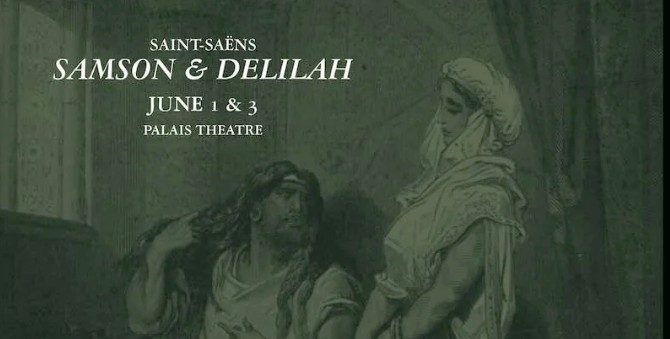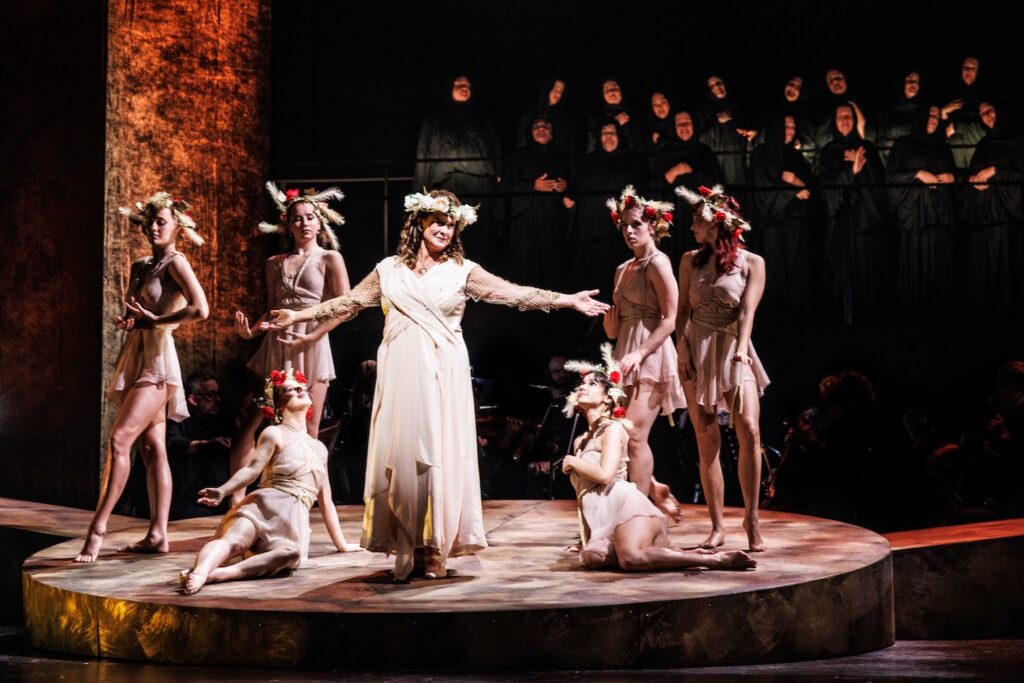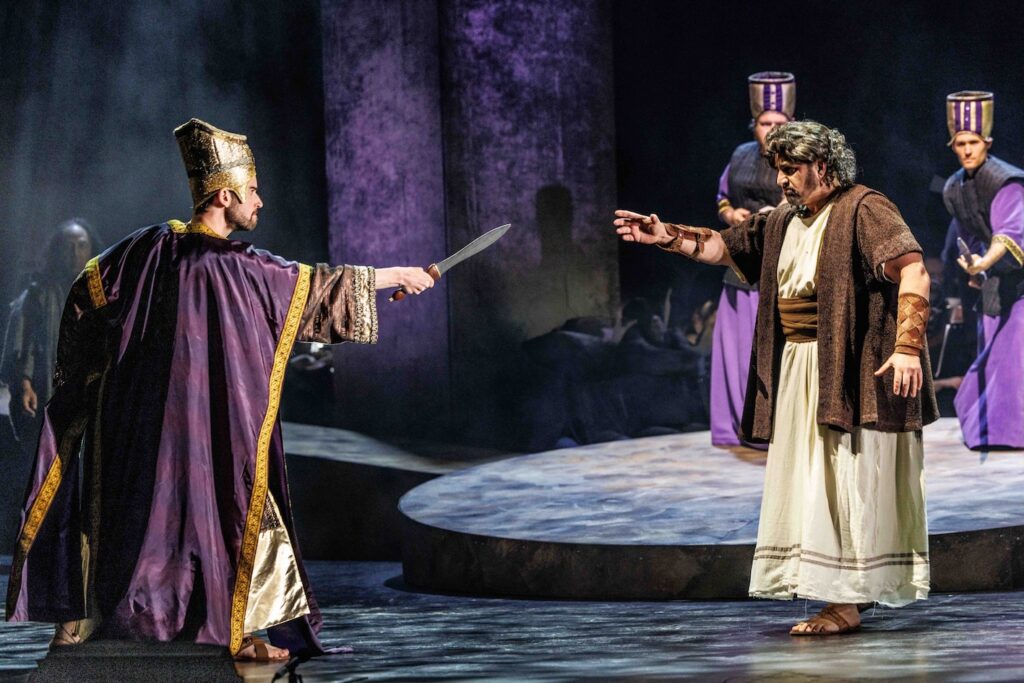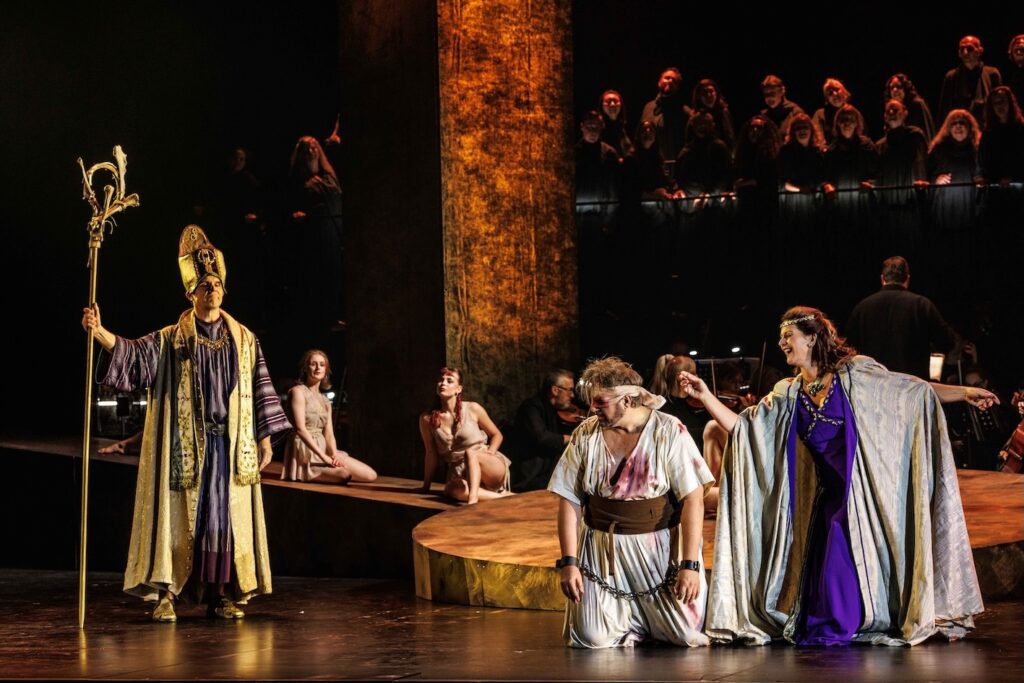
Composed by Camille Saint-Saëns. Libretto by Ferdinand Lemaire
A traditional yet refreshed take on one of the greats of the French opera repertoire, Samson et Delila
Reviewed by Rachael Vassallo
Palais Theatre, St Kilda
2 & 4 June, 2025
Tickets: https://melbourneopera.com/project/samson-delilah/
Type: French, Opera, 19th Century
If you liked: Cavalleria Rusticana, Faust, The Tales of Hoffman
How does one obtain the great physical and mental strength needed to free his people? Samson and Delilah (Samson et Delila) is an opera that explores how humans find strength in the most challenging of circumstances. Composed by Camille Saint-Saëns, the opera is based on the biblical tale of Samson and Delilah found in chapter sixteen of the Book of Judges in the Old Testament. A performance of the first act was so terribly received by French audiences in the early 1870s that no French opera house would agree to stage it. It wasn’t until 1877 when Grand-Ducal opera house in Weimar offered to produce it, that it was translated into German for its first full performance premiere. Sung in French, with English surtitles, Melbourne Opera’s Samson et Delila is the first time in over forty years that a professional production of this work has been staged in Melbourne.
As I walked through the doors of the Palais Theatre, I was struck by the formalities of the experience. Opera is one of the most eye-opening and sophisticated live genres, and the Palais Theatre is one of the few venues left in Melbourne with the grandeur of European opera houses.

The red curtain rose to expose two unadorned, cold pillars flanked the stage in an asymmetrical manner. They were positioned at either side of a circular plinth. Behind sat the Melbourne Opera Orchestra, and positioned above was a platform, used by the enslaved Hebrews. The set remained unchanged throughout the performance, such a design is common in opera. Rose Chong‘s Costuming was true to classical interpretations of biblical era fashion, with a rich scrim used throughout the performance, creating a partition and evoking the brutal landscape of the desert. Jacob Battista‘s set design successfully evoked the harsh desert landscape and the helplessness of the enslaved peoples.
Deborah Humble was an exceptional Delila, it was surprising to learn this was her role debut. Her vocals resonated with a rich vibrato as she used vocal inflections and tonal variation to effectively convey her characters’ storyline being sung in French. Despite the exuberant vocals, there were a few opportunities that I felt a more animated characterisation would have complemented the vocal communications more effectively.
As Samson, Rosario La Spina was unmatched. The sheer delicacy of his characterisation and vocal interpretation exuded the deep suffering and desperation of his character. His performance was completely captivating; his eyes radiated the penetrating fear and hopelessness of his character. It cannot be stressed enough that La Spina is a suspenseful actor, which is eminent in many crucial scenes throughout, particularly those depicting betrayal. His immensely powerful and moving vocal performance was equally matched by his physical performance. The sadness in his eyes and face, emphasised by his seated position and the mannerisms of his hands gave for an unforgettable performance. I found myself tearing up as his eyes lit up with courage in the finale.

Director Suzanne Chaundy has offered a very traditional approach in this production. I adored the dainty ballet dancers dressed in flowery, pink costumes who perofrmed two interludes, interacting with the singing cast. The dancers reinforced the romantic tension leading into betrayal in a sophisticated yet effervescent manner. Their presence evoked a very sensual, visual interest without falling to superficial eroticism, holding strong to the classical approach taken by Chaundy. The direction cleverly uses the stage space to effectively to depict strength and power of each of the characters, however left much room for the elements of loss and anger to grow. One of the most crucial moments of the work is the stripping of Samson’s hair, symbolic of his strength – the presence of which felt somewhat lacking in this production.
Conducted by Raymond Lawrence, Melbourne Opera’s Samson et Delila has had a short, two performance season at the Palais Theatre. Bringing us one of the greatest roles in operatic mezzo soprano repertoire, Samson et Delila is one of the greats in French Opera.
Theatre thought: What is the true source of our strength? Does your personal strength come from external factors, or from within, or both?






